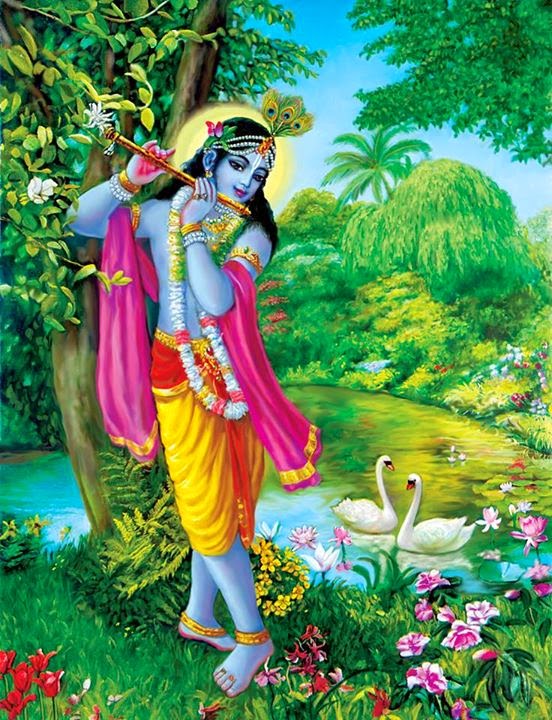The Spiritual Import of the Mahabharata and the Bhagavadgita : Ch-5. Part-2.
5: God is Our Eternal Friend-2
This was the great answer which the Bhagavadgita poses before us, who walk like peacocks with the pride of knowledge, and tells us where we actually stand. Yes, this is a great revelation indeed—that the world is involved in our perceptions and vice versa, and therefore no valuation can be acceptable in the end if it is purely individualistic, notional and limited to a single observer of things. Here we have the central philosophy of the third chapter of the Bhagavadgita. I mention these few words only a kind of recapitulation of what we observed in the last chapter.
All this is beautiful, yes, but who is to tell the senses that this is the state of affairs? Who is to give instruction to the mind that its perceptions and cognitions are erroneous? The teacher is absent, because the so-called teacher is the individual himself, and he is himself involved in the mistake that is committed in perception. The perceiver is involved in the perception, and if the perception is erroneous, and even in this erroneous perception the perceiver is also included, there would be no chance of enlightenment.
A question arises—what is going to be our fate? Who is to awaken us from the sleep of this ignorance? The Bhagavadgita is again the answer. It is an answer to all our questions in all the stages of their manifestation. There is a subtle power that works throughout the world, which is invisible to the senses and uncognisable by the mind. There is a mysterious presence pervading and enveloping all things, sustaining everything, connecting one thing with another thing and maintaining a balance of relationship among all things. Its manifestation at every juncture of time, at every crucial moment, is the rectifying factor behind every erroneous movement of things. The mysterious descent of this Universal presence into temporal events is what is called the avatara, the Divine Incarnation.
God manifests Himself at all times, and this manifestation is a perpetual process. Divine grace is like the flood of a river or the flow of the oceanic waves that never cease. God never withdraws His grace; He is an unconditional Giver. There is a perpetual flow of charity from the benign hands of the Almighty, and His charity is not merely material. He is not giving something out of Himself—He is giving Himself. The charity that comes from God is not a charity of objects, as is the case with the charity of people—it is a sacrifice of Himself that He makes. A self-abandonment is performed by the great Almighty in the incarnation that He takes, in the blessings that He gives, and in the grace that He bestows.
Swami Krishnananda
To be continued ..





Comments